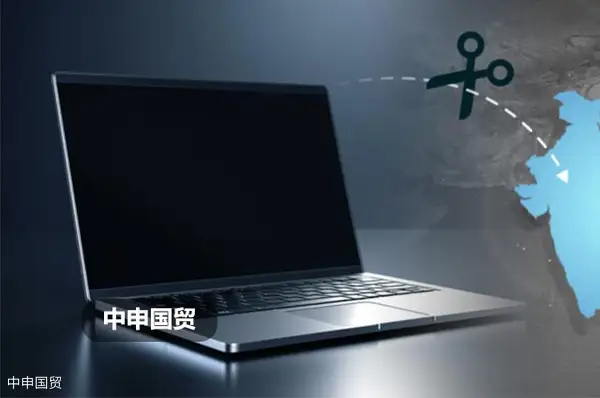- Shanghai Zhongshen International Trade Co., Ltd. - Two decades of trade agency expertise.
- Service Hotline: 139 1787 2118
Against the backdrop of deepening globalization, trade between countries has become more frequent. However, to protect domestic industries, countries occasionally introduce trade restrictions. Recently, the Indian government announced a delay in the planned import restrictions on laptops and tablets, a policy change that has drawn widespread attention across industries.
According to Reuters on the 23rd, Indian government officials revealed that facing opposition from the U.S. and industry resistance, India decided to postpone the implementation of import restrictions on laptops and tablets. The originally planned import licensing system, scheduled for this year, will now be reconsidered in November 2024.
India is a populous country with huge market potential, and its IT hardware market demand continues to grow annually. Market research firm Canalys Q2 2023 India PC market report shows total shipments of 3.9 million units, with laptops dominating at nearly 2.3 million units, while desktops and tablets combined accounted for about 1.6 million units. These figures fully demonstrate Indias substantial demand for IT hardware products.
Against this market backdrop, the Indian government originally planned to implement import restrictions on laptops and tablets to boost domestic IT hardware manufacturing. The policy aimed to reduce reliance on imports, encourage domestic R&D investment, enhance self-production capabilities, and promote sustainable development of Indias IT hardware industry.
However, the policy faced strong opposition since its announcement. The Indian Express analysis suggests that delaying restrictions until November 2024 may provide relief to IT hardware companies, which had been seeking 1-2 years of grace period. This indicates that while the policys intent was to protect and develop domestic industries, its implementation could create significant pressure for related enterprises.
Under the new import management system, companies will be required to obtain registration certificates for importing laptops, tablets and PCs, differing from the licenses proposed in the August 3 order. This change shows the Indian governments policy adjustment in response to industry opposition, attempting to find a balance between protecting domestic industries and minimizing corporate pressure.
Despite postponing the import restrictions, the Indian government remains determined to promote domestic manufacturing. Multiple production-linked incentive measures have been introduced to attract substantial IT hardware manufacturing investments. These measures aim to shift more manufacturing to India, achieving localization and enhancing domestic industry competitiveness.
However, policy implementation hasnt been smooth. On one hand, countries like the U.S. expressed concerns about Indias restrictive policies affecting multinational companies like Dell and HP; on the other hand, domestic Indian companies questioned the policy, arguing they werent ready for large-scale domestic production, which might lead to higher consumer electronics prices.
These objections indicate that while promoting domestic industries, the Indian government needs to more carefully consider market realities, finding policy paths that both protect domestic industries and maintain market stability in line with market rules.
Overall, Indias delay in implementing laptop and tablet import restrictions reflects a decision made after weighing domestic and international factors. This adjustment demonstrates the governments effort to balance promoting domestic industries while aligning with international markets and corporate needs. Going forward, Indias IT hardware market development will draw widespread attention, with government policies significantly influencing its direction.

Related Recommendations
? 2025. All Rights Reserved. 滬ICP備2023007705號-2  PSB Record: Shanghai No.31011502009912
PSB Record: Shanghai No.31011502009912









